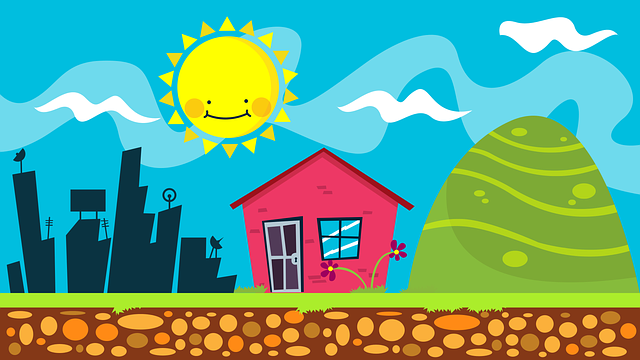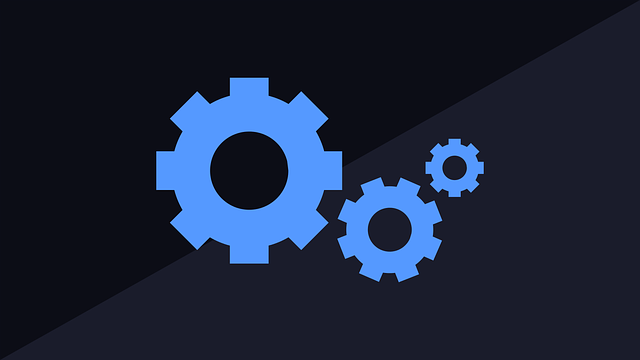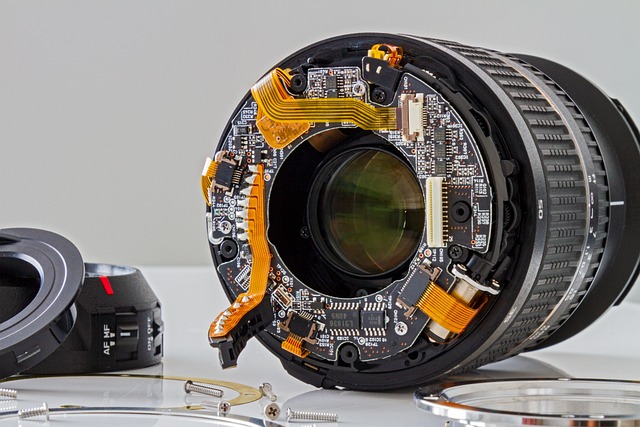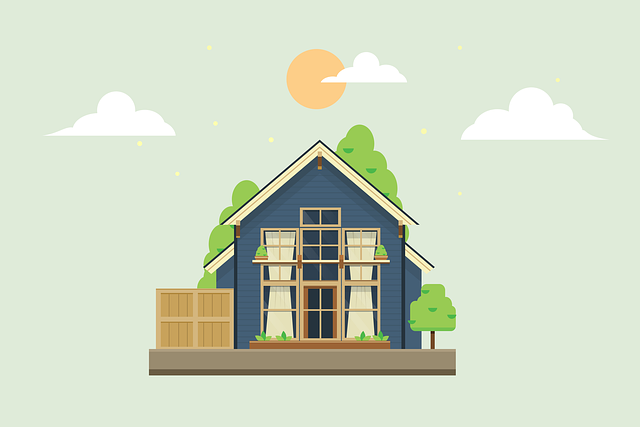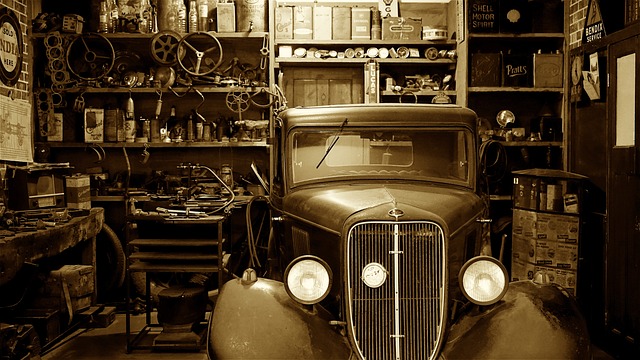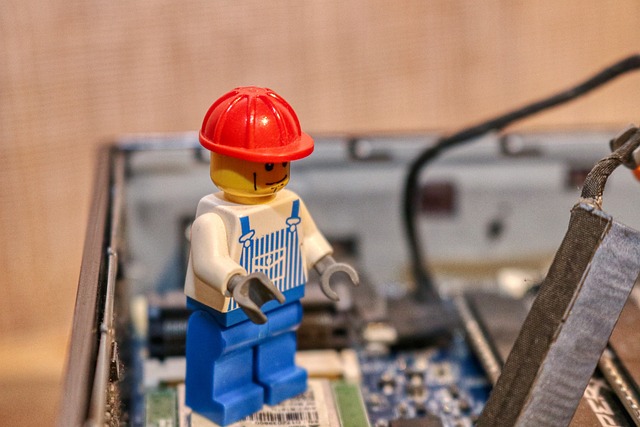Regular HVAC maintenance is crucial for ensuring home comfort, system efficiency, and longevity. Adhering to a routine of clearing outdoor units, replacing filters monthly, verifying thermostat accuracy, inspecting ducts, lubricating moving parts, and listening for unusual sounds can prevent costly repairs and maintain optimal performance year-round. Homeowners should follow manufacturer guidelines, perform regular checks, and consider professional help for complex tasks. With advancements in HVAC technology, modern systems offer smart features that enable predictive maintenance, alerting homeowners or service professionals to potential issues before they become serious problems. This proactive approach facilitates more efficient routine maintenance and contributes to the overall efficiency of Home Repair and Maintenance practices. The integration of IoT connectivity and predictive analytics is set to make HVAC maintenance less disruptive, more cost-effective, and more reliable for homeowners in the future.
Homeowners are increasingly cognizant of the critical role their HVAC systems play in maintaining a comfortable and energy-efficient living environment. This article delves into the essentials of HVAC maintenance and repair, ensuring your home’s climate control operates at peak performance. We’ll explore the significance of regular upkeep, provide a detailed checklist for self-inspection and cleaning, pinpoint frequent system malfunctions, and illustrate the benefits of professional intervention. Additionally, we’ll offer practical DIY tips to prolong HVAC efficiency between expert servicings and examine how cutting-edge technology enhances modern maintenance and repair strategies, all within the scope of home repair and maintenance best practices.
- Understanding the Importance of Regular HVAC Maintenance for Homeowners
- Step-by-Step Guide to Effective HVAC System Checkups and Cleaning Routines
- Common HVAC Issues and How Professional Repair Services Can Address Them
- DIY Tips for Maintaining Your HVAC System Between Professional Servicing
- The Role of Advanced Technology in Modern HVAC Maintenance and Repair Solutions
Understanding the Importance of Regular HVAC Maintenance for Homeowners

Regular HVAC maintenance is a pivotal aspect of home upkeep, serving to prolong the lifespan of your heating, ventilation, and air conditioning systems. Homeowners who prioritize this routine care can anticipate enhanced system efficiency, which not only translates into cost savings on energy bills but also contributes to a more comfortable living environment. Routine checks and cleanings prevent minor issues from evolving into major malfunctions, thus averting unexpected and often costly repairs. A well-maintained HVAC system operates smoothly, ensuring consistent temperature control throughout the year, which is particularly crucial in regions with extreme weather conditions. Home Repair and Maintenance experts emphasize that a proactive approach to HVAC upkeep can thwart many common problems before they arise, thereby saving time and resources. By scheduling regular maintenance inspections and adhering to the manufacturer’s recommendations, homeowners can maintain optimal performance and reliability of their HVAC systems. This not only ensures a healthier living space but also safeguards against potential system failures that could disrupt daily life or pose safety risks.
Step-by-Step Guide to Effective HVAC System Checkups and Cleaning Routines

Regular HVAC system checkups and cleaning are pivotal for maintaining efficient operation and prolonging the lifespan of your heating, ventilation, and air conditioning unit. To ensure your HVAC system functions at its peak throughout the year, follow this step-by-step guide for effective maintenance routines.
Begin by inspecting your HVAC system’s exterior components, clearing away any debris or foliage that may impede airflow. This includes removing leaves, dirt, and grass clippings from around the outdoor unit. Dust off the external coil gently with a soft-bristled brush or a garden hose set on a low-pressure stream to rinse away accumulated grime. Inside your home, ensure that air filters are clean; replace or clean them monthly during heavy use seasons to maintain good indoor air quality and prevent dust buildup that can lead to system malfunctions.
Next, check the thermostat settings and calibration to ensure accurate temperature readings. If necessary, adjust the settings to optimize energy usage and comfort. Inspect all visible ducts for leaks or damage, sealing any gaps with duct tape designed for HVAC use. It’s also wise to lubricate moving parts, such as fan motors and bearings, to reduce friction and wear. Finally, listen for any unusual noises coming from the system, which could indicate a need for professional repair. Regular maintenance can prevent minor issues from escalating into costly repairs, keeping your home’s climate control system reliable and efficient throughout the seasons. Home Repair and Maintenance practices are essential to maintain the functionality of your HVAC system and ensure it operates safely and effectively.
Common HVAC Issues and How Professional Repair Services Can Address Them

Regular HVAC maintenance is pivotal for maintaining energy efficiency and extending the system’s lifespan, which is a facet of proper home repair and maintenance. Common issues with heating, ventilation, and air conditioning systems often include clogged filters, malfunctioning thermostats, refrigerant leaks, and failing components like fans or motors. These problems can lead to discomfort, inefficient operation, and even health risks if left unaddressed. Professional repair services are equipped with the expertise and tools necessary to diagnose and resolve these issues effectively. They conduct thorough inspections to identify any potential malfunctions or signs of wear that could escalate into larger, costlier repairs down the line. Technicians from reputable services will clean or replace filters, recalibrate thermostats, repair or recharge refrigerant levels, and address any mechanical failures to restore your HVAC system’s optimal performance. Engaging professional assistance for these home repair and maintenance tasks not only ensures the safety and comfort of your household but also helps prevent more extensive damage that could require a full system replacement. It’s always advisable to opt for scheduled maintenance rather than taking a reactive stance, as this proactive approach can mitigate many common HVAC issues before they escalate.
DIY Tips for Maintaining Your HVAC System Between Professional Servicing

Regular maintenance is key to ensuring your HVAC system operates efficiently and has a long lifespan. Between professional servicing, there are several DIY tips homeowners can employ to maintain their systems effectively. One crucial practice is to regularly replace or clean the air filters. Dirty filters restrict airflow and can lead to a decrease in system efficiency, potentially causing your HVAC unit to work harder and wear out faster. A simple visual inspection of the filter every month and replacing it when necessary can significantly enhance your system’s performance.
In addition to filter maintenance, homeowners should also clear any debris or obstructions from around the outdoor unit. This includes removing leaves, grass clippings, or any other materials that could block airflow. Trim back any vegetation that may encroach on the unit and ensure there is at least two feet of unobstructed space all around for proper ventilation. Furthermore, it’s beneficial to clean the indoor coil if accessible, as this can remove dust and grime that accumulate over time, which in turn helps to maintain optimal system function. Regularly checking the thermostat settings and calibration can also prevent unnecessary wear on your HVAC system by ensuring it runs only when required. These simple DIY tasks contribute significantly to home repair and maintenance, extending the life of your HVAC system and saving you money on energy bills. Remember to always follow the manufacturer’s guidelines for your specific unit and consult a professional for any task that seems complex or beyond your comfort level.
The Role of Advanced Technology in Modern HVAC Maintenance and Repair Solutions

Today’s HVAC systems incorporate sophisticated technology that significantly enhances their maintenance and repair processes. Advanced sensors, smart diagnostics, and Internet-of-Things connectivity allow for proactive monitoring of system performance, ensuring optimal efficiency and longevity. These intelligent systems can detect minor issues before they escalate into costly repairs, providing homeowners with alerts and recommendations through user interfaces or directly to service professionals. As a result, routine maintenance becomes more efficient, with technicians equipped with mobile apps that guide them through diagnostics and repairs using real-time data. This leap in technology not only streamlines the repair process but also extends the lifespan of HVAC systems, reducing the need for frequent replacements and contributing to home repair and maintenance efficiency overall. With predictive analytics and remote monitoring capabilities becoming standard, the future of HVAC maintenance is poised to be less intrusive, more cost-effective, and increasingly reliable for homeowners.
Homeowners can safeguard their living environments and ensure energy efficiency by prioritizing regular HVAC maintenance and prompt repair services. This article has outlined the importance of upkeep, provided a comprehensive guide for self-checkups and cleaning, identified frequent system malfunctions, and highlighted the benefits of professional interventions in HVAC maintenance and repair. Additionally, it has delved into how cutting-edge technology enhances these services, aligning with the best practices in home repair and maintenance. By adhering to these guidelines, residents can maintain optimal performance and longevity of their HVAC systems, ultimately contributing to a more comfortable and sustainable home environment. Regular attention to your HVAC system is not just about responding to issues as they arise; it’s about proactive care that preserves the quality of your indoor air and the functionality of your heating and cooling systems.
